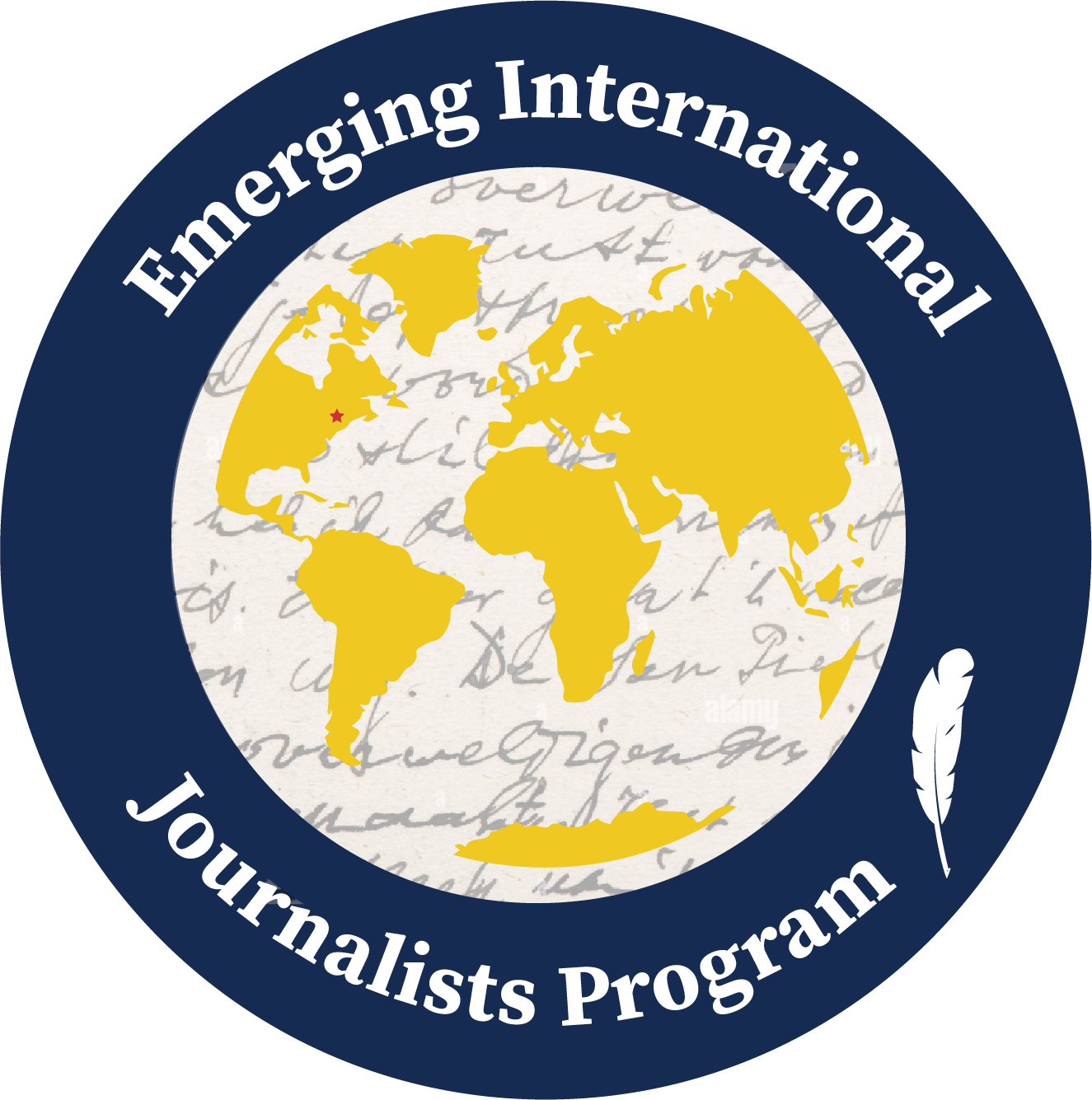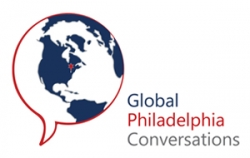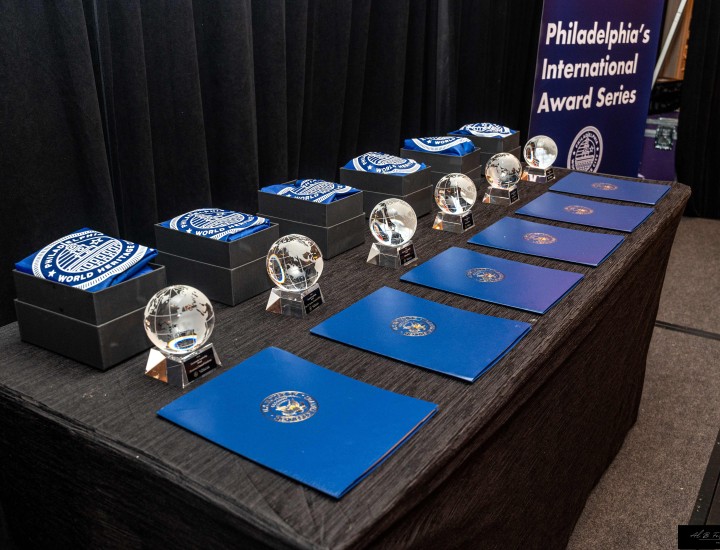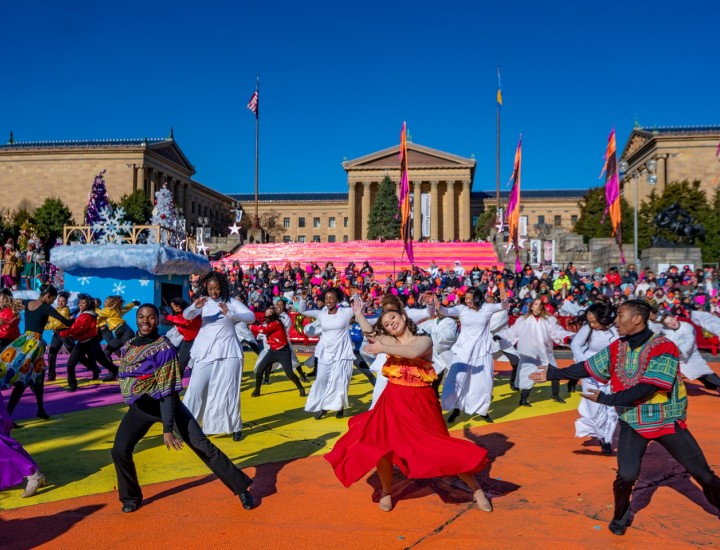A Global Conversation with Farah Jimenez
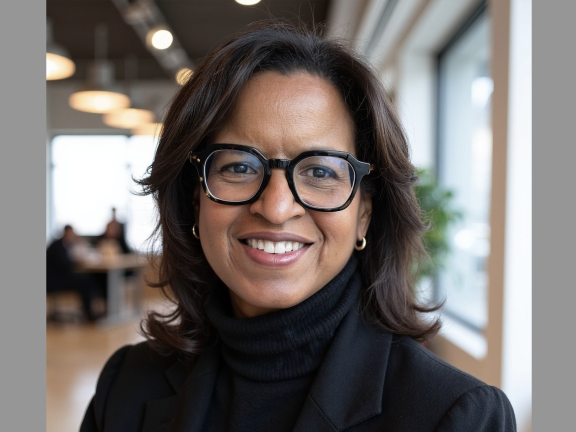
2025’s Educational Leadership Globy Awardee does not just believe in the power of education– she leads the integration of initiatives that result in tangible benefits for students in and out of the classroom, and is constantly fighting for students’ access to resources. Farah Jimenez is the President and CEO of the Philadelphia Education Fund (PEF), a nonprofit devoted to guiding Philadelphia students to college and career success and supporting upward economic mobility in the region.
Before leading this nonprofit, Jimenez was the Commissioner of the School District of Philadelphia’s School Reform Commission and previously headed the People’s Emergency Center, providing comprehensive social services and community development solutions in West Philadelphia. Deeply invested in providing for communities of color, women, and young people, Jimenez’s experience and leadership has established her as a motivated change-maker in the education and nonprofit sectors in our city.
GPA is presenting Farah Jimenez with our Globy Award for Educational Leadership as she approaches her 10th year as President and CEO of PEF, and we were honored to get her insights into her work and passions through this Global Conversation. The future of Philadelphia rests on its education of our students, and Jimenez is a leader in increasing opportunity not only for the influence it will have on students, but on our city and region as a whole.
Madi Costigan: Where did your passion for education stem?
Farah Jimenez: It actually started as a child. My parents are immigrants from Cuba, and when I was growing up, I always heard the story about how they left their home country with the clothing on their back, my sister in my mother's belly, and their education. So, as a child, I was always told that the only thing that no one can take away from you is your education.
I have a memory of being in high school and sharing with my mother that my friends would get money every time they get an A in a course. And I told my mom hoping that that would be repeated because I was a good student, but my mother looked at me and asked, “Do you think those A's are for me? Your education is for you.” Those stories are the ones that always resonated with me. When I worked with vulnerable populations and I saw how often that was a consequence of interrupted or incomplete education, I knew that education was so important and it has always been part of a deep area of interest for me as a result.
MC: The Philadelphia Education Fund hosts and organizes so many initiatives for students, from STEM workshops to networking events. What are some of your personal favorite events, and how have you seen them affect students?
FJ: Many are surprised to learn that just 38 percent of Philadelphia students attend comprehensive, catchment-area, District-operated high schools. The remainder attend charters, private or parochial schools, or selective citywide and special-admission programs. These neighborhood schools are where the barriers to economic mobility are most concentrated—and where the Philadelphia Education Fund concentrates its efforts.
PEF’s work spans middle grades through college– serving approximately 3,000 students annually. Our signature programs are Spark Philadelphia, an early college and career exposure program for middle graders; the College Access Program, providing four years of structured, one-on-one guidance to 1,770 high school students across six schools; and Philadelphia Scholars, which removes financial barriers to higher education by awarding $900,000 in aid annually through our endowed and partnered scholarships.
This year, we celebrate 40 years of serving Philly students. And, it never gets old hearing from our alums. So many of them are now giving back as teachers, counselors, advisors, college administrators, as well as lawyers, doctors, and even elected officials. It’s extremely gratifying to know that we had the opportunity to help that young person reach their fullest potential.
Also exciting to me is the work we do in partnership with others. One is our College Access and Success Ecosystem (CASE), which brings together public and private sector individuals to figure out how to increase the number of students who are completing high school on time, going to college, and completing college on time. The work of CASE involves committee members that include representatives of the School District of Philadelphia, the Mayor's Office of Education, and a plethora of non-profits who are doing college access work.
Another program that PEF runs is PhillyGoes2College.org. It is an online resource available to everybody in the region that curates all of the college-going information that we would want, including scholarship information programs that are available, deadlines of all of our regional colleges and universities, and locations of FAFSA fairs. It's a very robust platform, and it has an average of about 50,000 views every year. This year, in partnership with this platform, we are launching what’s called “What's Your Plan?” We want more students to have a moment of intention to actually write down what their plan is after high school, because if you write your plan down, you're more likely to actualize it. It also requires you to give thought to what you are going to plan to do after high school. Whether they're choosing college, which we really emphasize because it's the highest and fastest way of achieving economic mobility, or if they may be choosing to go into a trade route or a career route, we want them to be thoughtful and intentional around it.
We are also working through another collective strategy called the Philadelphia STEM Equity Collective (PSEC). It's a 10-year partnership we have with GSK to increase the number of students in STEM fields and in STEM careers who come from underrepresented populations. Typically, that is African American students, Latino students, and young women. We want to encourage them to pursue STEM as an academic and career pathway and we are examining the educational barriers to that. We are looking at algebra and how to increase algebra attainment and success, because that is the door that opens up student access and confidence in higher level math and sciences.
Finally, and maybe it’s because I loved my science classes in school, we have one program that is focused on exposing Philly students to lab skills. The program is called Ignite STEM, and it helps to ensure that young people have access to lab techniques, theories, and equipment if they aren’t able to get that in their high schools. Many students of color will express an interest in pursuing STEM as an educational pathway when they get to college, and then they end up dropping out of those programs because they may arrive in that biology or chemistry lab and it is the first time they're seeing that equipment, it's overwhelming and they feel like they're behind, so they end up quitting. We want to bring that work forward so more students are comfortable with those techniques, theories, and equipment, so that they can pursue what they really want to do and take advantage of the fact that we have such a strong Bio-Med and Life Sciences community in Philadelphia.
MC: You have worked in Philadelphia for decades– what do you find inspiring about our city and why is it a valuable location for the work you do?
FJ: I think our city has a lot of spirit and there are a lot of people who actually want to make a difference and improve conditions for those who have less access to opportunities. I'm particularly inspired now because there's been a movement amongst our corporate leaders, nonprofit leaders, philanthropists, and our city leaders, to examine how we can really grant economic opportunity for all, as the mayor calls it. There has been a real emphasis now on upward economic mobility.
Looking at the work of Raj Chetty from Harvard, his work at Opportunity Insights shows that Philadelphia and this region ranks 50 out of 50 for economic mobility. What do we need to be doing to increase this? Philadelphia did move from the poorest big city in the nation to the second poorest big city in the nation, but the data that's not being revealed shows that while the overall earnings have increased, the number of low-income people, or people living in poverty, has also increased.
So, we need to solve our poverty challenge if we really want to be the kind of region that supports economic opportunity for all. I'm inspired that there's real appetite and movement and interest across all the different sectors to move that work forward, and my hope is that at PEF, we'll be able to provide some leadership around the element that's about education and educational opportunity.
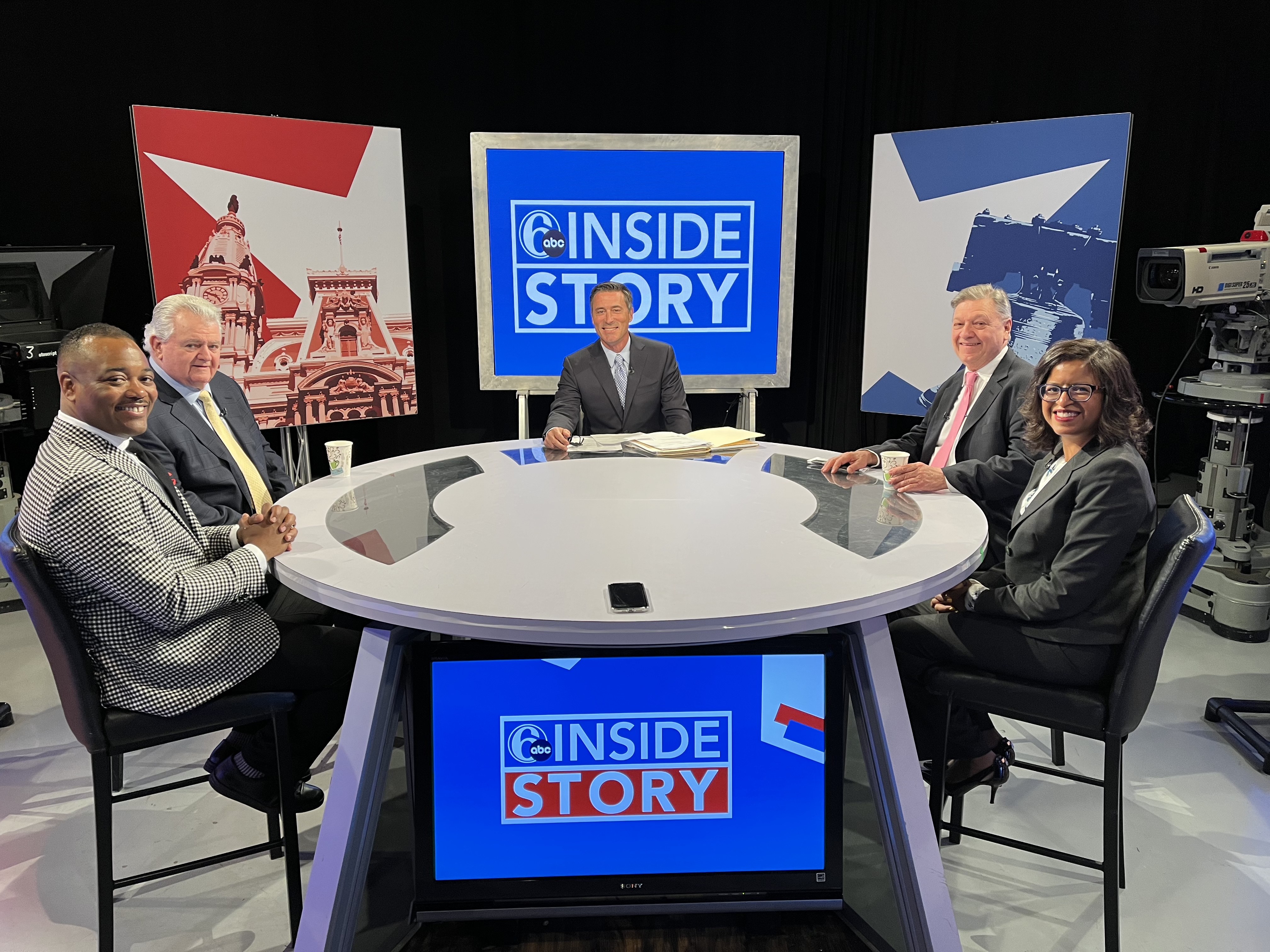
MC: I understand you are also involved with U.S. Figure Skating. Can you describe your interest in that?
FJ: I took up skating in my mid-30s, mainly because I was bored with fitness classes and wanted to try something different. I signed up for a learn-to-skate class and after a few lessons fell in love – immediately buying my own skates and hiring a coach. My goal was to learn to skate backwards. Fast forward 20 years and skating has become a huge part of my life. I train 3-4x a week, have multiple coaches, and compete in the adult circuit. I also travel the country as one of 15 nationally-appointed public address announcers for U.S. Figure Skating – serving as the in-arena voice at regional, national, and televised international competitions.
MC: Moving on to an international lens, I understand you have traveled to dozens of countries. How has travel positively impacted you, both personally and professionally?
FJ: I've been to more than 80 countries. I love to travel. I definitely have wanderlust. And for me, the main thing about travel is that it provides a moment to be reminded of how easy it is to have a U.S.-centric view of the world. Then, when you go to other countries and spend time interacting with people from those countries, you begin to recognize that the way that we view the world is so informed by our own living conditions and the environment we grow up in.
It also helps remind me to be more open to why somebody might have a different perspective on an issue, and that it's not because they're misinformed or uneducated, it's because their life experience is different and it shapes them differently. I often tell this story to people about traveling– I went to Angola and we had the opportunity to sit down to have lunch with the Israeli ambassador to Angola. I asked, “What do the people of Angola think about the fact that the richest woman in Africa just happens to be the daughter of their president?” Of course, I assumed, as an American, that there would be consternation and people would be really upset about it.
And he said, “You have to remember they just endured 27 years of civil war, and they expect their governments to steal from them. So the fact that the richest woman in Africa happens to be the daughter of their president matters less than the fact that at least when she's stealing from them, she's building hospitals and roads and airports– she's investing in opportunity for them. So they view that as positive.” It was a moment that made me realize my American view of the world and that there can be another way to look at things.
MC: How important is it for students and young professionals to be globally-minded?
FJ: I think it's incredibly important, not just because it adds so much to one's own development and learning, but in addition, it's really an important part of understanding the world. We don't live in a world anymore where everything happens in isolation– so much of how we operate in the world is dependent on having the right relationships with the right countries so that we can access resources and trade and share resources that help our entire global economy thrive or improve. It's really important that people, and young people in particular, be aware of the rest of the world and how it directly affects them.
In my own work at PEF, our work is very local at the moment. It would be wonderful to increase global exposure. In Philly, many don't realize that a lot of our comprehensive high schools have wild diversity; we have some schools where there are 30 or 40 different languages being spoken at home, and so a lot of our young people are getting that exposure in a very informal way, which is amazing.
MC: The Philadelphia Education Fund is celebrating its 40th year, and you have been its President and CEO for almost 10 years. What do these milestones mean to you and what are you most looking forward to?
FJ: I'm most looking forward to another 40 years and making sure that we continue to be an organization that is able to serve the young people in our community, so that we can be contributors to the upward economic mobility that everybody's so interested in making happen in Philadelphia. We really believe that education is a path forward.
As part of our origin story, we were founded as a collaborative that included the private sector, the school district, as well as a community of educators who really believed it was important to work outside of the school district to help provide resources and drive the aims of the district. Our work continues in that way, today, working in a deep partnership with the school district. Our services are mostly embedded in district-run schools, and through that partnership we look to fill resource gaps that help our students and schools thrive.
We also build networks. The more that we can support partnerships between the private, social, and public sectors, the more that we can impact outcomes for students. I'm really excited for all the collective action that we're doing, and how many entities are willing to invest their time to be part of those conversations and to develop programs and solutions for kids.
MC: Are there any messages or calls to action you would like to share with our readers?
FJ: I would like to extend two invitations. Any young person, or even any adult, who is interested in going to college or is curious about college, should visit our site, PhillyGoes2College.org. It serves middle graders to adults. They can learn more about what’s available to help them.
The other general invitation to get involved with our collective impact tables, the Philadelphia STEM Equity Collective or the College Access and Success Ecosystem. To get involved, you don't have to know anything about the field. You just have to be really interested in helping advance the work– whether it’s getting more students to be STEM confident or more young people prepared to succeed in college. Get involved. Together, we can change lives.
